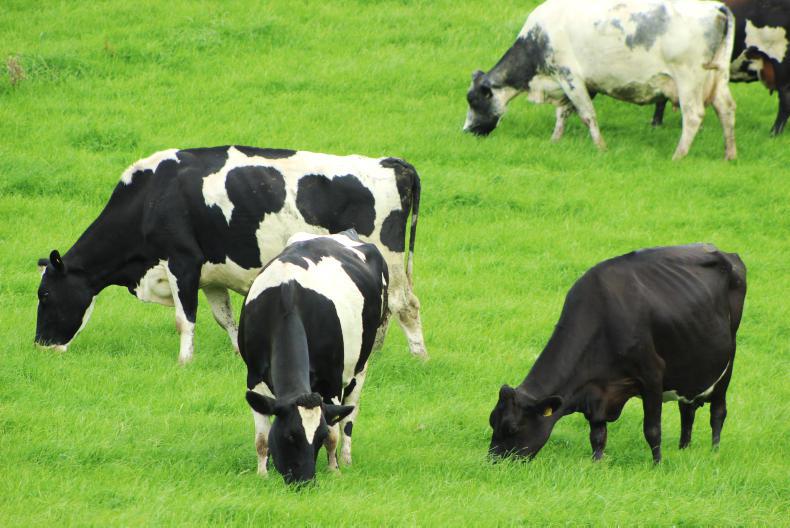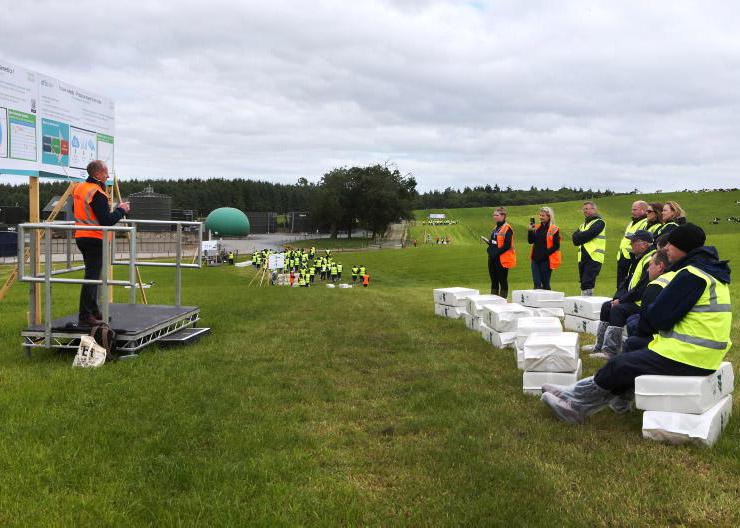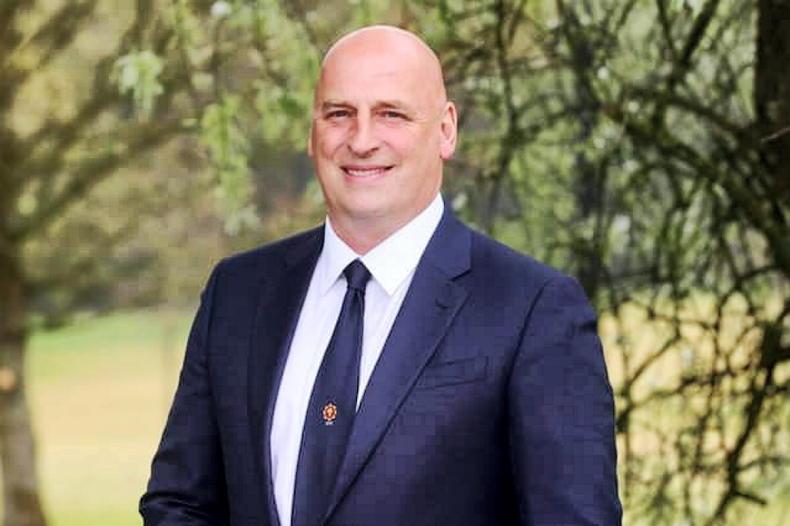Here is the Irish Farmers Journal’s live webinar on greenhouse gases and agriculture.
Friday's webinar included a pre-recorded interview with Prof Myles Allen, a world-renowned climate scientist who is currently head of geosystems science in the Environmental Change Institute at Oxford University in the UK.
Prof Allen discussed his new GWP* metric for measuring methane emissions and why he believes it is a more accurate and fairer system for measuring methane.
The interview with Prof Allen was followed by a panel discussion with a number of climate experts and policy influencers which discussed future climate policy in Ireland.
The live panel included:
Prof John Fitzgerald – chair of the Irish Government’s Climate Change Advisory Council.Thomas Duffy –Macra na Feirme president.Prof Gerry Boyle – director of Teagasc.Phillip O’Brien – scientific officer at Climate Secretariat, EPA Ireland.The panellists discussed the findings from this week’s Irish Farmers Journal, which shows methane from Irish livestock has a much lower global warming impact than currently estimated by regulatory bodies.
Who is Myles Allen and why does his work matter to Irish farmers?
Prof Myles Allen is a world-renowned climate scientist who is currently head of geosystems science in the Environmental Change Institute at Oxford University in the UK.
Prof Allen is one of the world’s leading climate scientists and has worked in the field of climate science for 30 years.
Prof Allen has served on the UN's Intergovernmental Panel on Climate Change (IPCC) as lead author on Detection of Climate Change and Attribution of Causes for the IPCC’s third assessment in 2001, and has also served as review editor on Global Climate Projections for the fourth assessment in 2007.
In 2015, Prof Allen worked as lead author on Detection and Attribution of Climate Change: from Global to Regional for the IPCC’s fifth assessment on climate change in 2013.
In 2018, Prof Allen and his team at the University of Oxford published a new paper outlining the GWP* metric to more accurately measure the global warming impact of short-lived climate pollutants such as methane.
EU Commission
Earlier this year, Prof Allen submitted his work on GWP* to the European Commission urging it to change the metric of how it measures methane emissions in order to more accurately achieve carbon neutrality.
“Having decided to aim for climate neutrality, Europe has a simple choice: to define climate neutrality in terms of metric-equivalent emissions or in terms of warming-equivalent emissions,” said Prof Allen in his submission to the EU.
"This should be an open and public discussion, because the implications, particularly for agriculture, are profound. Achieving climate neutrality in terms of metric-equivalent emissions could mean eliminating practices, such as ruminant agriculture, that are not actually causing global warming. Warming-equivalent emissions resolve this problem."
Why does GWP* matter?
Prof Allen argues that GWP* gives a more accurate reflection of the global warming impact of methane compared with the current greenhouse gas inventory system used by the IPCC and most governments.
Here is the Irish Farmers Journal’s live webinar on greenhouse gases and agriculture.
Friday's webinar included a pre-recorded interview with Prof Myles Allen, a world-renowned climate scientist who is currently head of geosystems science in the Environmental Change Institute at Oxford University in the UK.
Prof Allen discussed his new GWP* metric for measuring methane emissions and why he believes it is a more accurate and fairer system for measuring methane.
The interview with Prof Allen was followed by a panel discussion with a number of climate experts and policy influencers which discussed future climate policy in Ireland.
The live panel included:
Prof John Fitzgerald – chair of the Irish Government’s Climate Change Advisory Council.Thomas Duffy –Macra na Feirme president.Prof Gerry Boyle – director of Teagasc.Phillip O’Brien – scientific officer at Climate Secretariat, EPA Ireland.The panellists discussed the findings from this week’s Irish Farmers Journal, which shows methane from Irish livestock has a much lower global warming impact than currently estimated by regulatory bodies.
Who is Myles Allen and why does his work matter to Irish farmers?
Prof Myles Allen is a world-renowned climate scientist who is currently head of geosystems science in the Environmental Change Institute at Oxford University in the UK.
Prof Allen is one of the world’s leading climate scientists and has worked in the field of climate science for 30 years.
Prof Allen has served on the UN's Intergovernmental Panel on Climate Change (IPCC) as lead author on Detection of Climate Change and Attribution of Causes for the IPCC’s third assessment in 2001, and has also served as review editor on Global Climate Projections for the fourth assessment in 2007.
In 2015, Prof Allen worked as lead author on Detection and Attribution of Climate Change: from Global to Regional for the IPCC’s fifth assessment on climate change in 2013.
In 2018, Prof Allen and his team at the University of Oxford published a new paper outlining the GWP* metric to more accurately measure the global warming impact of short-lived climate pollutants such as methane.
EU Commission
Earlier this year, Prof Allen submitted his work on GWP* to the European Commission urging it to change the metric of how it measures methane emissions in order to more accurately achieve carbon neutrality.
“Having decided to aim for climate neutrality, Europe has a simple choice: to define climate neutrality in terms of metric-equivalent emissions or in terms of warming-equivalent emissions,” said Prof Allen in his submission to the EU.
"This should be an open and public discussion, because the implications, particularly for agriculture, are profound. Achieving climate neutrality in terms of metric-equivalent emissions could mean eliminating practices, such as ruminant agriculture, that are not actually causing global warming. Warming-equivalent emissions resolve this problem."
Why does GWP* matter?
Prof Allen argues that GWP* gives a more accurate reflection of the global warming impact of methane compared with the current greenhouse gas inventory system used by the IPCC and most governments.










SHARING OPTIONS